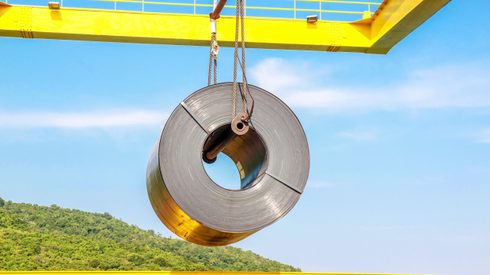“The automotive industry for sure will accept higher prices because of green steel,” Jörg Brinckmann, head of ironmaking and green steel at SMS Group, said on Monday June 6 during a panel discussion on decarbonization strategies.
Panelists and delegates predicted that any additional costs incurred from a green steel premium could trickle down to end-users – and that consumers might be willing to pay the price.
A green steel premium will make for better margins, and yes, the automakers will pay a premium
“A green steel premium will make for better margins, and yes, the automakers will pay a premium – but the added cost also needs to be passed on to the final consumer,” a distributor told Fastmarkets.
In a shift from last year’s Steel Success conference, when Steel Dynamics Inc (SDI) president and chief executive officer Mark Millett said that net-zero emissions targets remained “aspirational” without support from consumers, buyers along the supply chain have voiced increased demand for “green” products.
“Customers are more than willing to pay for [green steel]. The original equipment managers are one thing, but we’re also getting interest from service centers. It’s taking effect along the supply chain,” Theresa Wagler, chief financial officer of SDI, said at the conference. Still, she argued that a carbon tax should be implemented before a dollar value is set for the green steel premium.
In his keynote address on Monday, Nucor president and chief executive officer Leon Topalian agreed that a green steel premium is possible.
“Our customers are willing to pay a premium for a net-zero steel,” he said.





